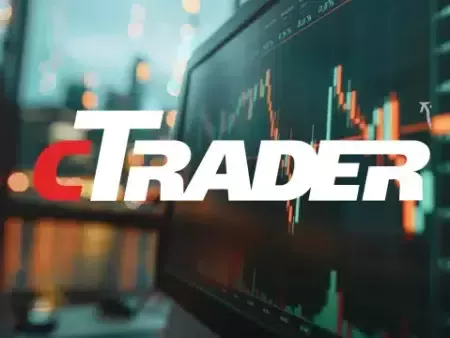In an ever-evolving financial landscape, funded trading has quickly become a beacon of hope for many aspiring traders. With minimal risk to personal capital and a doorway to substantial market capitalization, funded trading stands as a modern-day Eldorado for those aiming to carve a niche in the trading world. The concept, primarily revolving around prop trading firms, allows traders to operate with significant capital provided by the firm, paving the way for potentially high returns without the burden of hefty investments. This burgeoning industry not only lowers entry barriers but also promises a dynamic and lucrative career for savvy traders.
Introduction to Funded Trading
Funded trading has emerged as a significant force in the trading domain, offering a unique proposition to traders worldwide. It is an innovative model where traders collaborate with prop trading firms to access capital and engage in financial markets. This paradigm shift has attracted numerous traders, driven by the aspiration to craft a trading career without the constraints of capital investment. It’s a realm where skill and strategy can truly shine, unencumbered by financial limitations.
Understanding Different Types of Funded Trading
The world of funded trading is diverse, encompassing various forms like Prop Trading, Hedge Funds, Social Trading, Fund of Funds (FoF), and Algorithmic Trading. Each type offers unique features and opportunities, catering to different trading styles and objectives. For instance, Prop Trading firms like those listed on FundedTrading’s Top 5 Forex Prop Firms provide traders with capital and a share of the profits, while Hedge Funds focus on pooling capital for larger investments.
When comparing funded trading to retail trading, the former stands out for its access to more capital, reduced risks, and advanced trading tools. This makes it an attractive option for traders who aim for higher growth with lower fees.
The Pros and Cons of Funded Trading
Every silver lining has a cloud, and funded trading is no exception. While it offers significant advantages such as access to substantial capital and lower risk, there are challenges too. Traders must navigate through the intricacies of profit sharing and adhere to the firm’s trading strategies and risk management protocols. Understanding these pros and cons is crucial for anyone considering a career in funded trading, and resources like Funded Trading’s Guide to Technical Indicators can provide valuable insights.
Building a Career in Funded Trading
To venture into full-time funded trading, one needs more than just an understanding of the markets. It requires a blend of skill, strategy, and the right mindset. Developing a trading plan, managing risks, and aligning with the firm’s strategies are pivotal. For those looking to start their journey, FundedTrading’s guide on how to start forex trading in 2023 offers a comprehensive roadmap.
Advanced Strategies in Funded Trading
Funded trading isn’t just about access to capital; it’s a realm where advanced strategies like High-Frequency and Algorithmic Trading play a pivotal role. These techniques, built on the pillars of speed and efficiency, leverage automated systems to execute trades. Understanding and effectively utilizing trading bots and expert advisors can dramatically enhance a trader’s performance. For those looking to delve deeper, the Best Indicators in Automated Trading provide a solid foundation for developing sophisticated trading strategies.
Training and Onboarding in Prop Firms
The journey to becoming a successful funded trader often begins with comprehensive training and onboarding programs offered by prop firms. These programs cover essential aspects such as market analysis, risk management, and strategic trading approaches. Prop firms invest in these educational resources, including webinars, e-books, and video tutorials, to equip traders with the necessary skills for success. Understanding the nuances of trading platforms is also a key component of this training, as highlighted in resources like Funded Trading’s Instant Funding vs Evaluation.
Navigating Regulations and Compliance
In funded trading, understanding and adhering to regulations and compliance is non-negotiable. Traders must familiarize themselves with the funded trading terms, ensuring they comprehend and follow the firm’s guidelines to avoid potential pitfalls. This is especially crucial for traders from non-English speaking backgrounds, where nuances in language can lead to misunderstandings. For a comprehensive overview of funded trading rules and parameters, Funded Trading’s detailed explanation is an invaluable resource.
Hedge Funds vs. Prop Trading Firms
Understanding the distinction between hedge funds and prop trading firms is crucial for any trader considering a funded trading career. Hedge funds, traditionally accessible only to high-net-worth individuals, operate differently from prop firms, which are more accessible and offer immediate trading opportunities. The entry barriers and investment requirements for hedge funds are significantly higher, making prop firms a more viable option for many traders. To explore the best prop trading firms of 2023, visit FundedTrading’s comprehensive review.
FAQs on Funded Trading
What is Funded Trading?
Funded trading involves trading with capital provided by a proprietary trading firm. This approach allows traders to access significant capital without risking their own funds. For a deeper understanding, Funded Trading’s guide explains the concept in detail.
How Do I Choose the Right Prop Firm?
Selecting the right prop firm involves researching their reputation, funding conditions, and support services. It’s crucial to ensure they are legitimate, as discussed in Funded Trading’s article on identifying legitimate prop firms.
Can You Make Money in Prop Trading?
Yes, traders can make money in prop trading by utilizing the capital and resources provided by prop firms. Success depends on the trader’s skill, strategy, and adherence to the firm’s guidelines.
What Are the Risks Involved in Funded Trading?
Risks include potential financial losses, the need to adhere to the firm’s trading strategies, and compliance with their rules. Traders must manage these risks effectively to succeed.
How Do I Develop a Winning Trading Plan?
Developing a winning trading plan involves understanding market dynamics, risk management, and strategic trading approaches. Funded Trading’s guide to creating a profitable trading plan offers valuable insights.


